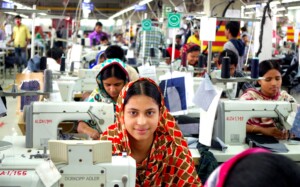 In my last post I discussed how a purely cost-accounting-driven make-or-buy decision can be bad for the company. However, there are often good reasons to buy parts or products instead of make them. In this post I will look at a couple of reasons for outsourcing rather than making it yourself. Unfortunately, all of these are hard to pin down in numbers, and at the end of the day it is still a qualitative decision.
In my last post I discussed how a purely cost-accounting-driven make-or-buy decision can be bad for the company. However, there are often good reasons to buy parts or products instead of make them. In this post I will look at a couple of reasons for outsourcing rather than making it yourself. Unfortunately, all of these are hard to pin down in numbers, and at the end of the day it is still a qualitative decision.
The Supplier Has More Competence
 The first good reason to buy the parts from a supplier rather than making them yourself is if the supplier has more competence than you do. This may be based on patent rights, but more likely on a mix of experience, skilled employees, and a suitable machine park. This is actually one of the most common reasons to outsource, as no company is good at everything.
The first good reason to buy the parts from a supplier rather than making them yourself is if the supplier has more competence than you do. This may be based on patent rights, but more likely on a mix of experience, skilled employees, and a suitable machine park. This is actually one of the most common reasons to outsource, as no company is good at everything.
One common example is packaging (unless you are in the packaging industry). Few companies make their own cardboard boxes. Even though it is “just a cardboard box,” the supplier simply has more competence (and, see the next point, probably also a larger economy of scale).
This becomes even more critical for technically advanced components. Even some (smaller) car makers buy their combustion engines from other car makers. Some Rolls Royce are powered by a BMW engine. Aston Martin is powered by a Mercedes Benz engine, and Lamborghini Huracan Performante by an Audi engine. High-end computer chips are made by highly specialized makers, especially the Taiwan Semiconductor Manufacturing Company (TSMC). Even high-end graphic card-maker Nivida designs only chips and outsources production to TSMC. It is estimated that Chinese electronics specialist Foxconn manufactures 40% of all electronics worldwide, including products for Apple, Nintendo, Nokia, Sony, Google, Xiaomi, and many more.
The Supplier Has Larger Economy of Scale
 Another reason to outsource is if the supplier is significantly larger than you are in this field of business and has a much better economy of scale. The larger supplier can purchase materials cheaper, can handle demand fluctuations better due to its larger volume, and has a larger machine park that is better utilized. Somewhat overlapping with the previous point of having more competence, the employees are also often more skilled in the manufacturing processes. All of this makes the product truly cheaper at the supplier, not only based on cost accounting (see previous post).
Another reason to outsource is if the supplier is significantly larger than you are in this field of business and has a much better economy of scale. The larger supplier can purchase materials cheaper, can handle demand fluctuations better due to its larger volume, and has a larger machine park that is better utilized. Somewhat overlapping with the previous point of having more competence, the employees are also often more skilled in the manufacturing processes. All of this makes the product truly cheaper at the supplier, not only based on cost accounting (see previous post).
A lot of the companies from the previous points are also good examples of economy of scale, from Foxconn to TSMC to large car makers and even to packaging companies.
One risk of having a much larger supplier is that you are just one customer out of many and don’t have much control over the supplier. When Volkswagen (and many other car makers) canceled semiconductor orders during the Coronavirus crisis in 2020, TSMC in turn felt no need to prioritize Volkswagen when the demand increased again.
The Supplier Has Lower Labor Cost
 Yet another reason is suppliers that have lower labor costs, often in East and Southeast Asia. Here, too, savings according to cost accounting and true savings may not be the same. A rule of thumb is that the part has to be at least 30% cheaper for it to be worthwhile to outsource to Asia. The long-distance supply chain makes fluctuations much more difficult to handle, increases the lead time, makes it more difficult to fix quality defects, and that’s assuming you work well with the cross-cultural barriers.
Yet another reason is suppliers that have lower labor costs, often in East and Southeast Asia. Here, too, savings according to cost accounting and true savings may not be the same. A rule of thumb is that the part has to be at least 30% cheaper for it to be worthwhile to outsource to Asia. The long-distance supply chain makes fluctuations much more difficult to handle, increases the lead time, makes it more difficult to fix quality defects, and that’s assuming you work well with the cross-cultural barriers.
You Don’t Want to Focus on Making this Part
 Yet another reason has less to do with the supplier but more with your company. Maybe due to a strategic decision, you don’t want to make a certain product or part for a product. Maybe it is not what you consider your core competence, and you prefer to focus on where you can actually make a difference. This often overlaps with the next reason lack of capacity.
Yet another reason has less to do with the supplier but more with your company. Maybe due to a strategic decision, you don’t want to make a certain product or part for a product. Maybe it is not what you consider your core competence, and you prefer to focus on where you can actually make a difference. This often overlaps with the next reason lack of capacity.
You Lack Capacity
 Maybe you don’t want to make this part yourself because of lack of capacity. This lack of capacity could be manifold. Maybe you lack the floor space to put up another assembly line and don’t want to embark on a time consuming venture to expand the plant. Maybe you are just lacking enough machine capacity and want to use your machine park for other parts and products that are closer to your heart. Similarly, you could lack employees and don’t want to hire people that you may not need anymore in six months. This lack of manpower could be in production, but also in product design, quality control, or logistics. Even the lack of management attention may be the cause. There are many possible reasons why you could lack the capacity to make it yourself and would much rather hand the part to a supplier. Do note that outsourcing a part is not free and also takes the time and effort of your people.
Maybe you don’t want to make this part yourself because of lack of capacity. This lack of capacity could be manifold. Maybe you lack the floor space to put up another assembly line and don’t want to embark on a time consuming venture to expand the plant. Maybe you are just lacking enough machine capacity and want to use your machine park for other parts and products that are closer to your heart. Similarly, you could lack employees and don’t want to hire people that you may not need anymore in six months. This lack of manpower could be in production, but also in product design, quality control, or logistics. Even the lack of management attention may be the cause. There are many possible reasons why you could lack the capacity to make it yourself and would much rather hand the part to a supplier. Do note that outsourcing a part is not free and also takes the time and effort of your people.
Be aware that this could also be a temporary situation. Either you see a temporary demand for which you don’t want to build up capacity, or you do see a longer-term demand, but it takes time to build up capacity even though you really need the capacity now. In this case a supplier can cover the gap until your own capacity comes online. Be aware that suppliers charge a bit more for short-term contracts, as building up capacity for them also costs money.
How to Judge
 The above reasons are all valid reasons for outsourcing a part. Please note that all of them also have the difficulty of being properly calculated. There are always factors like fluctuations and delays that cost accounting cannot capture reliably. As a general rule, you should not chase small cost savings, since they are likely to be eaten up by unforeseen other costs caused by the outsourcing.
The above reasons are all valid reasons for outsourcing a part. Please note that all of them also have the difficulty of being properly calculated. There are always factors like fluctuations and delays that cost accounting cannot capture reliably. As a general rule, you should not chase small cost savings, since they are likely to be eaten up by unforeseen other costs caused by the outsourcing.
Also, maybe only one of the above reasons applies to your case (or maybe all of them do). It is up to management to judge whether these reasons are good enough and to decide which part to outsource and which one not. Just don’t look only at the cost accounting numbers. Now, go out, decide what to make and what to buy, and organize your industry!
PS: This post was inspired by a very fruitful discussion with Karl-Ludwig Blocher.
